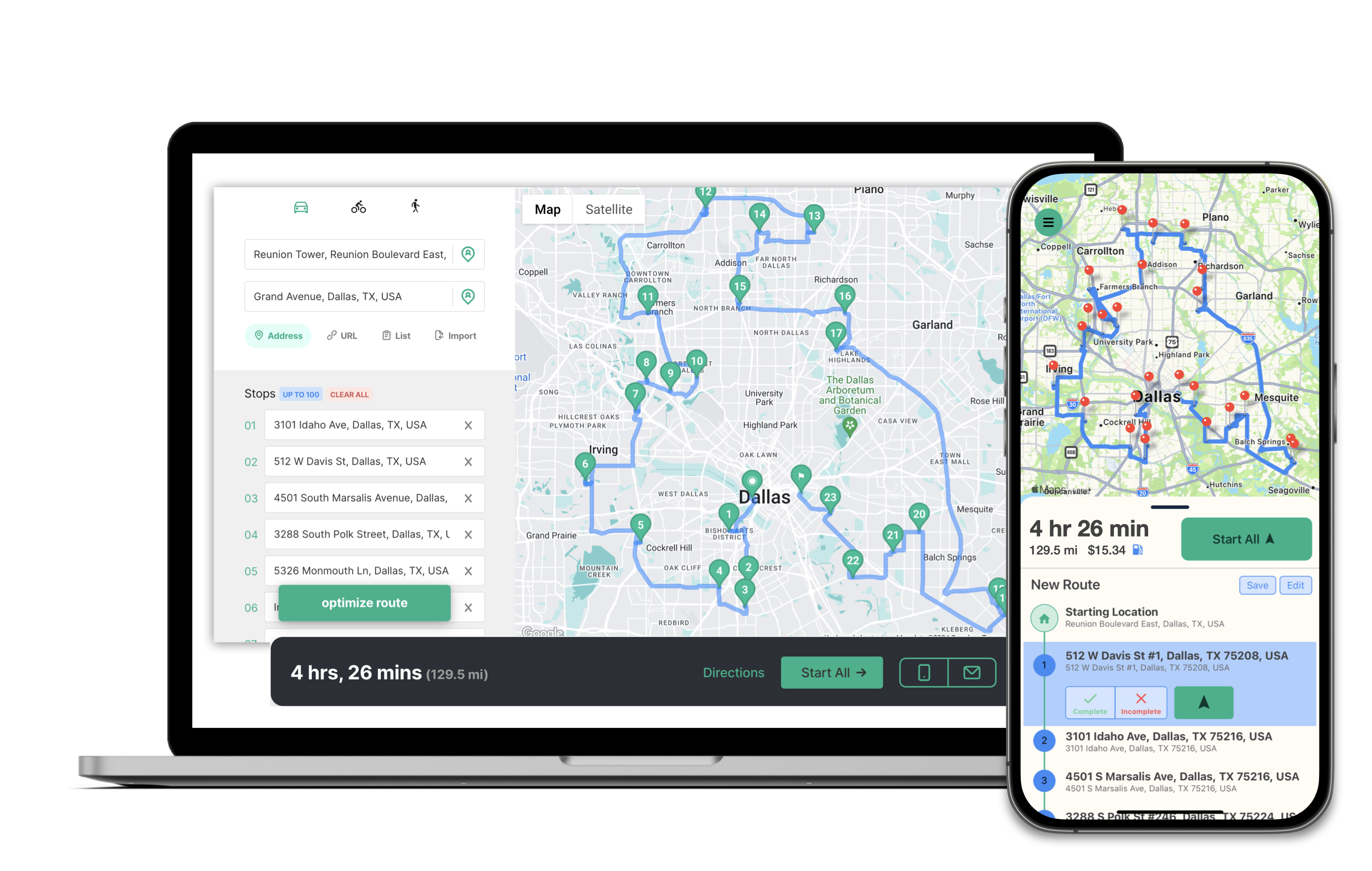In the ever-evolving landscape of logistics, Artificial Intelligence (AI) has emerged as a game-changer, particularly in the realm of route planning. The transportation industry, often beset with challenges like fluctuating fuel costs, unpredictable traffic conditions, and the constant pressure to deliver faster and more efficiently, is now finding powerful solutions through AI. The influence of AI in transforming route planning is profound, driving efficiencies that were once thought unattainable.
AI-Powered Efficiency in Transportation
AI's role in enhancing logistical efficiencies is multifaceted. By harnessing vast data sets, AI algorithms can predict traffic patterns, anticipate possible delays, and even suggest the best times for travel. This predictive capability allows for more accurate and dynamic planning, a stark contrast to traditional methods that often relied on historical data and human intuition.
Moreover, AI brings a level of real-time responsiveness that was previously lacking. In the event of sudden traffic jams or road closures, AI systems can quickly reroute, minimizing delays. This real-time adjustment not only saves time but also reduces fuel consumption and vehicle wear-and-tear, leading to significant cost savings and a reduction in environmental impact.
Optimal Reordering of Stops
One of the most significant benefits AI brings to route planning is the optimal reordering of stops. AI algorithms analyze multiple factors - including distance, traffic conditions, and specific delivery windows - to determine the most efficient sequence of stops. This optimization often leads to routes that are counterintuitive to human planners but are far more efficient.
For instance, consider a delivery truck that needs to make multiple stops in a large city. An AI system can calculate the quickest route, considering not just the shortest distance but also the time of day, typical traffic patterns, and even specific customer preferences for delivery times. This optimized route can drastically reduce the total time spent on the road, allowing for more deliveries within the same timeframe or reducing the number of vehicles needed on the road.
Saving Significant Time and Resources
The time savings from AI-driven route optimization are substantial. Businesses using AI for route planning report significant reductions in delivery times, often leading to improved customer satisfaction due to quicker and more reliable service. Additionally, the efficiency gained translates to lower operational costs. Fuel consumption decreases as routes become more direct and less time is spent idling in traffic.
Moreover, the time saved can be redirected towards more productive tasks, enhancing overall business operations. Employees who spend less time on the road can focus on customer service or other aspects of the job that AI cannot replicate, like personal interaction and complex problem-solving.
AI for the Win
The transformation of route planning through AI is not just a glimpse into the future of logistics; it's the present's unfolding reality. As AI technology continues to evolve and become more accessible, its role in transportation and logistics will only grow more significant. The efficiencies gained through AI-driven route planning are undeniable, offering a competitive edge to businesses that embrace this technology. In a world where time is a precious commodity, AI is the key to unlocking its full potential in the logistics sector.
.png?alt=media&token=f7ff7317-c24a-4956-b943-91baec97600c)
